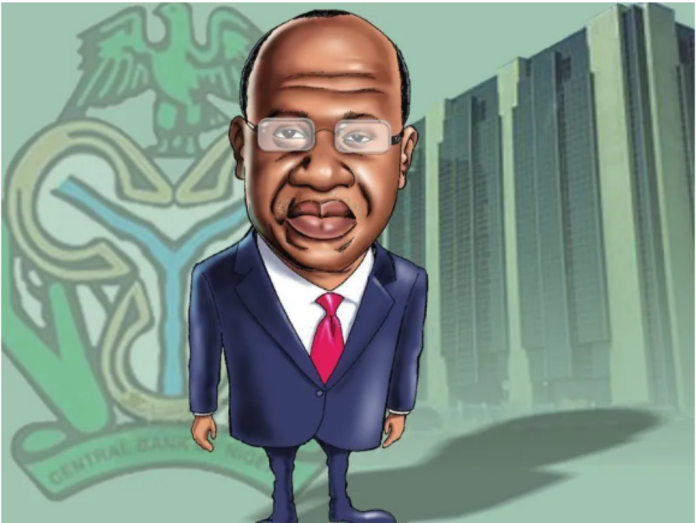The economy is the foundational structure of all human societies. We have to produce to feed, clothe, and house ourselves, to be alive and take part in political and social life. These are all economic activities. The economy is thus the “oxygen” that human societies depend on as the basis of our survival.
That is why people take economic issues seriously, even when the nitty gritty of these are not clear to us. We have to be concerned about the way resources are allocated for production, distribution, and consumption. With the target of ensuring the basic fulfillment of the human needs.
But governments try to mystify the reality of exploitation, which is inherent in capitalist economies with economic policies, that they will improve our lives, even when these continue to deepen the inequality gap between the rich and the poor, leaving working-class people in poverty.
Central banks play a key role in formulating and implementing the exploitative economic policies of the capitalist system. These apex banks, such as the Central Bank of Nigeria (CBN), oversee monetary policies.
The CBN has come up with several policies in recent times, including recoloration of the Nigerian Naira. But these are cosmetic designs that have not improved our lives as working-class people. The monetary policies it has formulated have failed.
Through its Monetary Policy Committee (MPC), the CBN has adjusted interests three times within a space of seven months rate to 11.5%, 13.5% and 14% respectively. But the rate of inflation has not decreased.
It is the working class that is bearing the burdens of these increases and the continued rise of the inflation rate, at the same time. From a meager minimum wage that is so limited for households to survive on.
The bank has made billions of naira available to big business through several interventions. But these have not led to any significant increase in production to get the economy out of the doldrums it has been for years.
An example of such interventions is the N1.5 trillion given as loans to corporations in the power sector ostensibly to generate, transmit and distribute electricity, after privatization almost a decade ago. Nigerians still do not enjoy a regular supply of electricity but are made to pay crazy bills all the same.
The apex bank’s support funds for Small and Medium Enterprises (SMEs) have all gone the same way. It has failed to meet the set targets of employment generation and microeconomic stability, that the support was meant to meet.
In addition, the CBN’s policies for managing the national foreign reserve have now worked. The rate at which the naira to the dollar has collapsed this year is shocking, leaving the working class under the weight of dollar-induced high cost of basic things of life, almost all of which are imported.
In agriculture as in manufacturing, the CBN’s policy initiatives have all failed. For example, we were told that local rice production would be boosted when CBN supported rice farmers with N146 billion in 2019. An additional N106.39 billion was again disbursed for the same purpose earlier this year. But rice prices are still very high. And most of the bags of rice available to purchase at these high prices are imported.
The CBN’s monetary policies are neoliberal. They perpetuate the much-hyped free market economy that has repeatedly failed us since the Structural Adjustment Programme (SAP) of the 1980s.
These macroeconomic policies have worsened the economy in general, while it works for a few well-connected capitalists that have become richer, even though they have little to show by way of enhanced production of goods and services.
They have accumulated more wealth through dubious privatization of state-owned enterprises and government contracts. The state supports the capitalist class, which it represents, not only by selling off properties bought with our national wealth to them at giveaway prices.
It also does all it can to repress resistance from working-class people who are fed up with the suffering they make us to bear, for a few people to get richer.
The working class must stand firm and strong in putting up resistance and fighting for an alternative economic model. The trade unions need to go beyond condemnation of various anti-worker policies of the CBN and bodies of the capitalist state or coming up with workers’ charters.
These are important, but they are not enough. Over a decade ago, the Nigeria Labour Congress (NLC) organized a series of workshops intending to come up with an “Alternative National Development Agenda.” But unceremoniously, it abandoned the project.
This is the time for the unions to come up with alternative anti-capitalist and pro-workers economic policies and set the agenda for public discourse. This has been done before and can be done again.
In 1986-1987 NLC led the working class’s intervention in a national debate on the future of Nigeria organized by the Samuel J. Cookey-led political bureau. This helped to enlighten working-class people, and the vast majority of Nigerians’ position was that Nigeria needed to adopt a socialist social-economic model of development.
This position remains valid today. However, no government will give it to us. We have to fight for it and win by overthrowing the capitalists and their order. And this fight must be based on perspectives and well-thought-out alternative models to that which the CBN, the FGN and the entire capitalist class stand for.
by Adefolarin OLAMILEKAN









